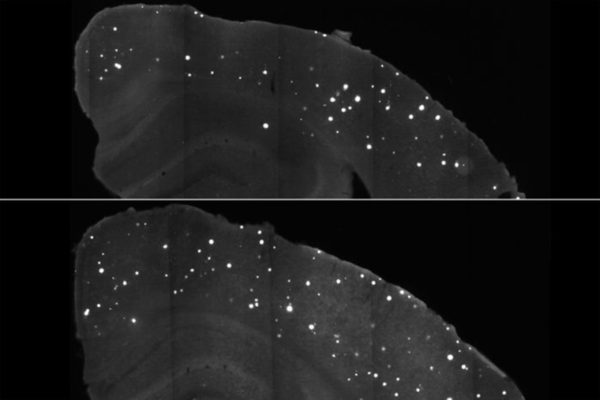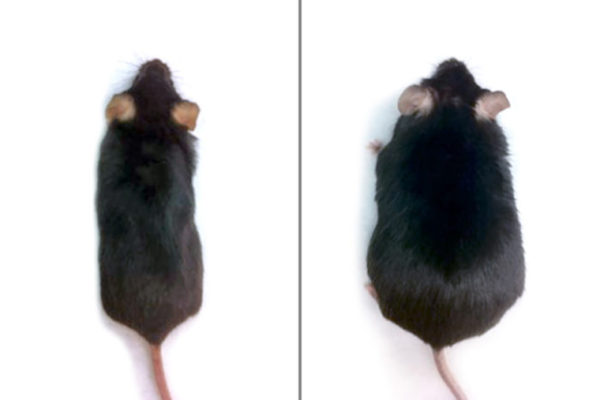Washington University research spurs new WHO guidelines for disabling tropical disease
Research led by the School of Medicine has prompted the World Health Organization (WHO) to issue new treatment guidelines aimed at accelerating global elimination of lymphatic filariasis – a devastating tropical disease.
Kidney disease increases risk of diabetes, study shows
School of Medicine researchers have linked kidney disease to a higher risk of diabetes. They found that the likely cause is elevated urea levels.
Brain networks that help babies learn to walk ID’d
School of Medicine scientists have identified brain networks involved in a baby’s learning to walk — a discovery that eventually may help predict whether some infants are at risk for autism.
Alzheimer’s damage in mice reduced with compound that targets APOE gene
School of Medicine researchers have identified a compound that targets the APOE protein in the brains of mice and protects against damage induced by the Alzheimer’s protein amyloid beta.
Clot-busting drugs not recommended for most patients with blood clots
About half of people with blood clots in the deep veins of their legs develop a complication that involves chronic limb pain and swelling, making it difficult for some to walk and perform daily activities. A large-scale clinical trial has shown that a risky, costly procedure to remove such clots fails to reduce the likelihood that patients will develop the debilitating complication.
Medicare shift to quality over quantity presents challenges
A new study hints that even large physician practices may have trouble moving to a payment system that rewards quality of health care over quantity of services delivered. And the new system may disproportionately burden small practices, researchers found.
Obesity prevented in mice fed high-fat diet
Researchers at Washington University School of Medicine in St. Louis have identified a way to prevent fat cells from growing larger, a process that leads to weight gain and obesity. By activating a pathway in fat cells in mice, the researchers found they could feed the animals a high-fat diet without making them obese.
Pursuing a precision paradigm
Why move from current standards of patient care to a more personalized approach to treatment? Experts at the School of Medicine describe today’s medical landscape as they plan for the care — and cures — of the future.
Building the foundation for discovery
The School of Medicine is building the necessary infrastructure through centers and institutes to allow research that is more efficient and cost-effective, and that encourages high risks leading possibly to key breakthroughs.
Undaunted explorer
Timothy Ley, MD, has been investigating leukemia, particularly acute myeloid leukemia (AML), for decades. His research team now knows the mutations they need to go after aggressively, the nature of the mutations that need to be targeted and why patients relapse.
Older Stories









